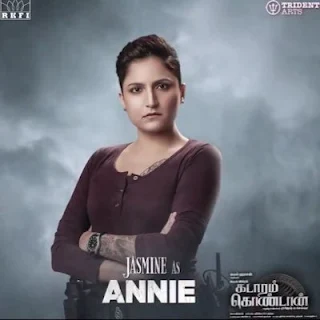Putham Pudhu Kaalai (புத்தம் புதிய காலை, A brand new dawn, Tamil; 2020)

Given the restrictions that COVID imposed on the film industry, five screenwriters came up with five different tales that used the Indian national 21-day lockdown as the backdrop of stories. Somehow the isolation helped the characters to reassess the life await of them, embrace the changes and make amends of their past. And not to miss the twist at the end of the last snippet titled 'Miracles'. Indeed miracles work in mysterious ways.
In the first story ('llamai Etho Etho', 'here here youth'), an older couple, both widowed, try to hook up on the sly without the knowledge of their respective adult children. The exciting thing is that the moment they meet they are transformed into their younger selves (literally on the screen; their role assumed by younger actors). Soon lockdown is announced, and it becomes an opportune time to discover each other's highs and lows, warts and all. Society limits the expression of passion to the youth as if the aged are not capable or need for passionate love. Without longevity and improvement in health, is there a place for companion of the opposite gender? Or old age is merely a time to improve one's intellect or perform tapas to enhance one's standing in the karmic cycle?The second offering ('Avarum Naanum, Avalum Naanum' - 'He and Me - She and Me') illustrates the many ill feelings that people carry on in their lives. Many of these can be just sorted out by straight face-to-face civil interaction to hear out each other's point of view. This, a granddaughter found out when she reluctantly agreed to babysit her grandfather and lockdown was instituted. She learnt that oldies are not mere dinosaurs who are stuck in the glue of the past. They also try to keep in sync with the winds of change.
Maybe the next one ('Coffee anyone') is kind of over the top. A comatose 75-year-old lady with pontine haemorrhage is discharged home after spending two months in ICU. Her two daughters, from the US and UK, drop in to spend time and celebrate her birthday. The third daughter who had left home over differences in career choices is not in good terms with her parents. This story questions the merits of strict parenting, the outsourcing of parenting duties as practised by modern parents and the traditional Indian type of parents hawking of children's every academic performance.
Unlike the previous stories which are set in more aesthetic homes, the final presentation takes place in the less glamourous of sites. It involves lowly petty thieves and a financially depleted movie maker. Convinced that motivational guru is referring to them when he keeps on saying on TV that he foresees a miracle coming their way. The thugs get the news that a business has hidden his ill-gotten gains in an abandoned car. They decide to look for it.
Everything is a miracle if we appreciate their existence. The fact we can breathe and enjoy things around us with our fully intact senses itself is the biggest miracle. Why look for another?




















